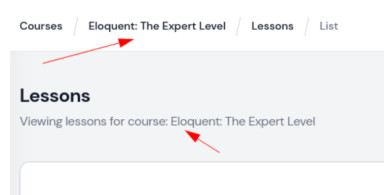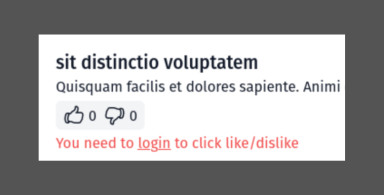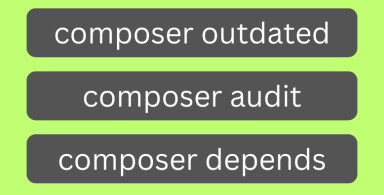First - how Accessors work
For those who don't know or have forgotten: for example, if you have User model and fields first_name and last_name in the DB table, then you can create a function in app\User.php:function getFullNameAttribute() {
return $this->first_name . ' ' . $this->last_name;
}
Then you have access to property full_name (in the function name it's CamelCase, and the property name is with underscores _), for example like this:
echo User::find(1)->full_name;But here's the thing - if you just return User object, it won't contain full_name:
dd(User::find(1)->toJSON());The result would look something like this:
{
"id":1,
"first_name":"Povilas",
"last_name":"Korop",
"email":"povilas@webcoderpro.com",
"created_at":"2015-06-19 08:16:58",
"updated_at":"2015-06-19 19:48:09"
}
Here's where $appends comes in
Now this is the trick - in your User model you can add $appends attribute and list the fields that would automatically be appended:class User extends Model
{
// ...
protected $appends = ['full_name'];
Now that attribute will be automatically added to the previous JSON:
{
"id":1,
"first_name":"Povilas",
"last_name":"Korop",
"email":"povilas@webcoderpro.com",
"created_at":"2015-06-19 08:16:58",
"updated_at":"2015-06-19 19:48:09",
"full_name":"Povilas Korop"
}
Want more articles like this every week? Subscribe!
So, in short - Accessor fields would work just by describing getAbcAttribute() methods, but if you want them to be returned in the list as well, then add them to $appends property.
More about Accessors (and related - Mutators) - in the official documentation.

-front_grid.jpg)
-front_grid.jpg)



No comments or questions yet...